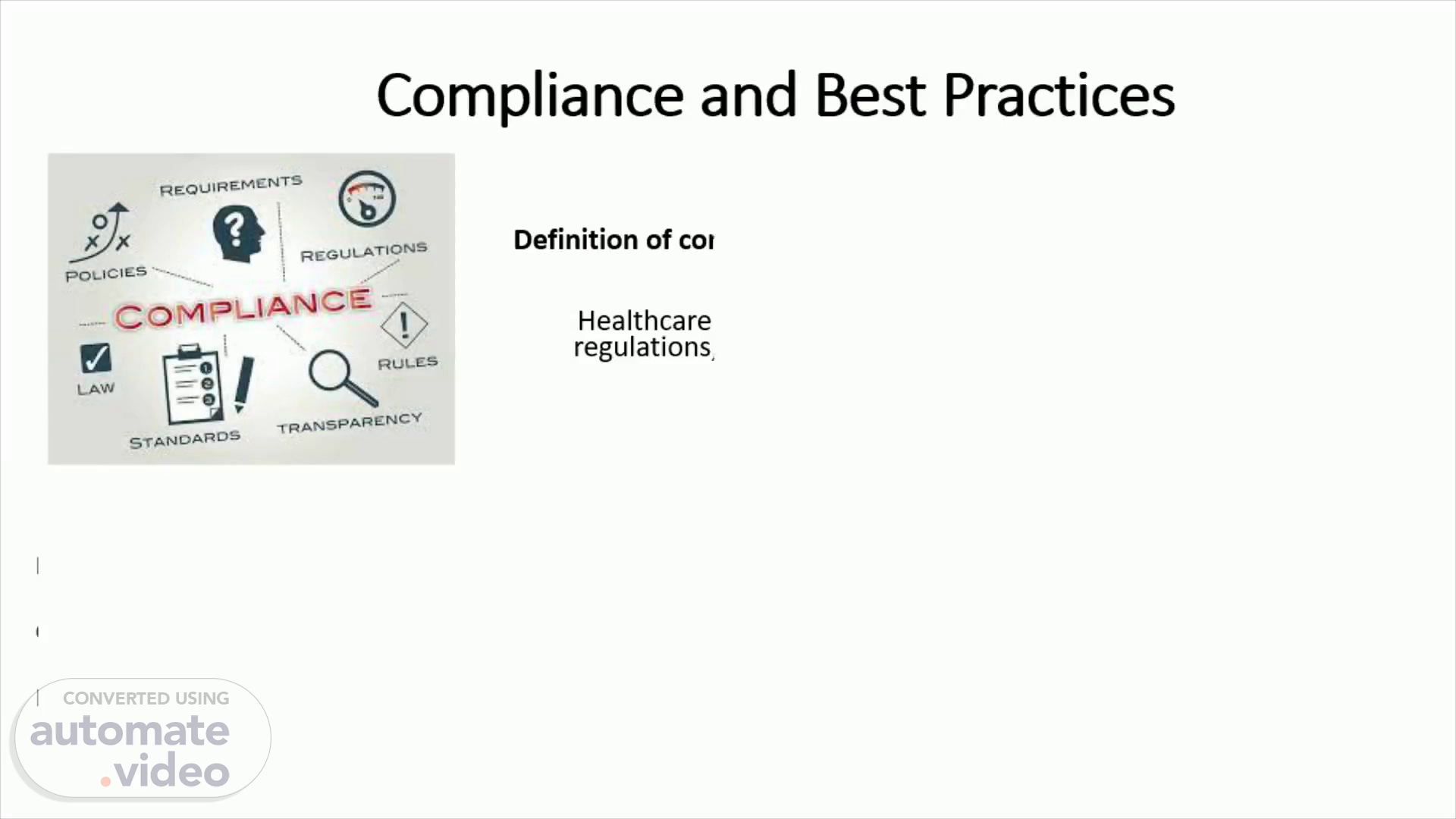
Compliance and Best Practices
Scene 1 (0s)
Compliance and Best Practices. Definition of compliance in healthcare Healthcare compliance is the process of following rules, regulations, and laws that relate to healthcare practices..
Scene 2 (33s)
Why healthcare compliance is important Every healthcare organization must have some level of corporate compliance in order to operate effectively. Compliance keeps operations running smoothly and makes sure everyone follows proper procedures and understands expectations. But compliance in healthcare comes with even higher stakes than in other industries. If a doctor or nurse doesn’t follow proper procedure, they can end up injuring a patient or another staff member. Ultimately, healthcare compliance is about providing safe, high-quality patient care. Complying with industry standards and regulations helps healthcare organizations continue to improve the quality of care. Healthcare organizations are also held to strict standards, regulations, and laws from the federal and state levels. Violations of these laws can result in lawsuits, hefty fines, or the loss of licenses..
Scene 3 (1m 28s)
What is required for healthcare compliance? There are many different aspects of healthcare compliance, governed by a variety of federal and state agencies. Changing laws and regulations can make it difficult for organizations to keep up with healthcare compliance. And laws differ between states and local governments. Every healthcare organization should take time to examine the different laws that apply to their organization. However, here are some of the governing bodies and federal regulations that govern healthcare compliance:.
Scene 4 (2m 0s)
The Social Security Act governs funding and requirements for Medicare, Medicaid, CHIP, and more. HIPAA and the HITECH Act protect patient privacy, requiring healthcare organizations to implement measures to keep patient records secure. The False Claims Act makes it illegal to file a false claim for funds from a federal program. The Patient Protection and Affordable Care Act implemented new requirements for insurance, Medicaid, and more. The Department of Health and Human Services and the Office of the Inspector General help protect against fraud.